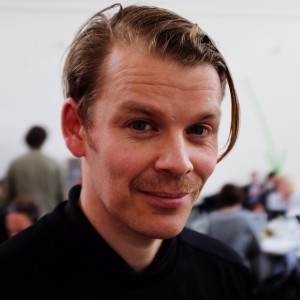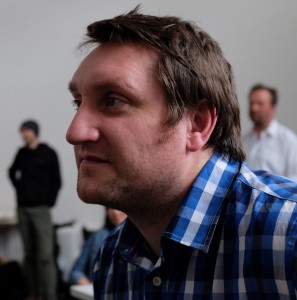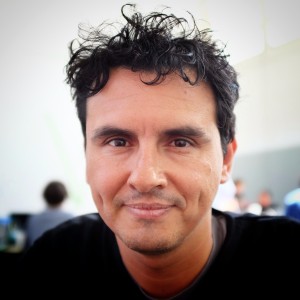The big hack: Pushing newsgames further
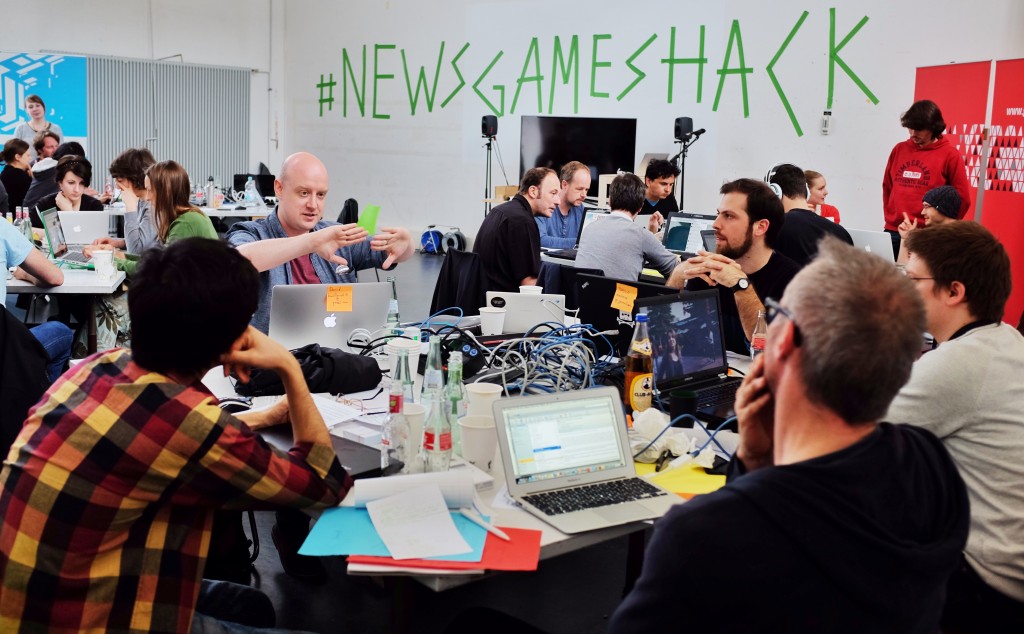 Bring programmers, graphic designers and journalists together and give them 48 hours to develop games to help explain, clarify or interpret the news. That was the idea behind the Newsgames Hackathon held in the German city of Cologne this week.
Bring programmers, graphic designers and journalists together and give them 48 hours to develop games to help explain, clarify or interpret the news. That was the idea behind the Newsgames Hackathon held in the German city of Cologne this week.
Journalism orientated hackathons are fast becoming a valuable way of generating new ideas and formats for digital media.
“I always think it’s fantastic that people with different backgrounds work together,” said newsgames hackathon organizer, Marcus Bösch.
Bösch is a journalist and media trainer (he also works for DW Akademie) and is at the forefront of developing news games in Germany, where he co-founded the Good Evil games studio.
“You have a journalist and a programmer and they talk together to solve problems,” Bösch said to onMedia’s Guy Degen at the event, which ran from May 6-7, 2014.
“That’s the way we should work. That’s the only way forward. Otherwise we’ll keep on publishing articles that were made out of a Reuters feed for the next hundred years and that can’t be the future of journalism.”
The newsgames expert Tomas Rawlings was also on hand in Cologne to give advice to the hackers. He’s conscious that news editors often have a strong perception that “games equal fun or equal trivial” or the medium “can’t be used to cover a serious subject”.
Rawlings argues that newsgames should focus on engagement and not necessarily on being fun to play. His gaming studio Auroch Digital has developed successful newsgames that have tackled serious topics such as the civil war in Syria and climate change.
Pitching ideas and hacking
After a round of brainstorming and pitching ideas, the participants at the Newsgames Hackathon formed into six teams and got hacking.
The ideas for games were very diverse – from a smartphone application “iPay” to help you understand the costs behind products, to a “FIFA World Cup Planner” exploring the challenges preparing the football world cup, to a Flappy Bird inspired game – “Flap your Privilege” – that lets you experience how different dimensions of your identity – race, class, gender, sexual orientation, education or ability – will affect the ease or difficulty with which you fly though life.
At the end of the second day, all six teams had produced a functioning prototype of their newsgame. Among the teams, there was certainly a lot of relief for making the deadline. But there was also a sense that, at least among European “newsgamers”, they could go back to their newsrooms with new ideas for newsgame development and production workflows.
While hackathons are important, says Bösch, it’s important to get the newsroom behind the project.
“All you can do in the hackathon is produce a prototype,” he said. “If the journalists and programmers go back to their newsrooms and convince their editors to make the game for real, that’s the next step.”
So where is the emerging field of newsgames heading?
onMedia spoke to some of the newsgames hackers to find out what they learned and achieved and to get a sense of where this innovative branch of journalism might be going.
Xavier de la Vega, Journalist (Shame Gas team)
What have you learned at this newsgames hackathon?
As a journalist, I deal with facts. I’m not a game designer but what really interested me is this idea of trying to translate ideas into a real games experience. You can conceive very different games and the focus here is more on mechanics. It was very challenging for me to start from a concept, and use all the information I gathered to produce a real game using simple mechanics.
Do you have any doubts about the potential of newsgames?
No. The difficult part is to find a business model for these kind of games and also that they become accepted. Newsgames can be fun to make and fun to play, but I don’t think fun games are the ones media networks are looking for. It’s clear that media networks want news, they want information. And basically the mechanics and tone [of the game] must be focused on that.
Elena Cresci, Community Co-ordinator, Guardian (Flap your Privilege team)
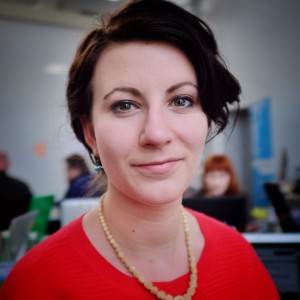 What have you learned at this newsgames hackathon?
What have you learned at this newsgames hackathon?
Even though I’m very interested in news games and what they can bring to news organizations I know very little about how to make them. I feel as if I’ve learned much more now. Maybe not in terms of coding but in the skills I need to get it together. It’s also shown me how important it is to have a team of people who are working together. As Tomas [Rawlings] said, you need three people: a journalist, a developer and graphic designer and I think that’s very true. I think a lot of news organizations have those people already, it’s just a matter of getting them together and taking the opportunity to make something.
As a journalist, what skills or practices do you need to work in a team that is developing a newsgame?
I think you need to have an open mind. I’ve noticed that I used to play games a lot when I was younger but I haven’t recently and I think that’s impacted me a little bit because I’ve not been thinking about playability – how would I approach this game as a player? So I think it’s important to have at least an awareness of games. And a willingness to experiment. I think a lot of organisations are very used to being stuck in their ways and the only way to change is to experiment.
Matthias Huber, Journalist, Süddeutsche Zeitung (World Cup Planner team)
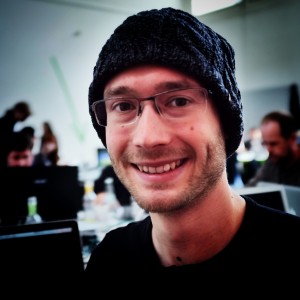 What have you learned at this newsgames hackathon?
What have you learned at this newsgames hackathon?
What I’ve realized here is it’s very challenging to produce a newsgame that conveys information and is also fun and keeps the player engaged. I believe that’s the main realisation for me. I think we shouldn’t make newsgames that are not fun. The player should always want to continue playing.
What are you bringing back to your newsroom from this hackathon?
That you can develop very fun newsgames in a short amount of time, and that newsgames don’t necessarily have to be a big production with 3D and animation to be fun.
Text and photographs by Guy Degen
Deutsche Welle was a media partner of the Newsgame Hackathon hosted at the Cologne Game Lab.



